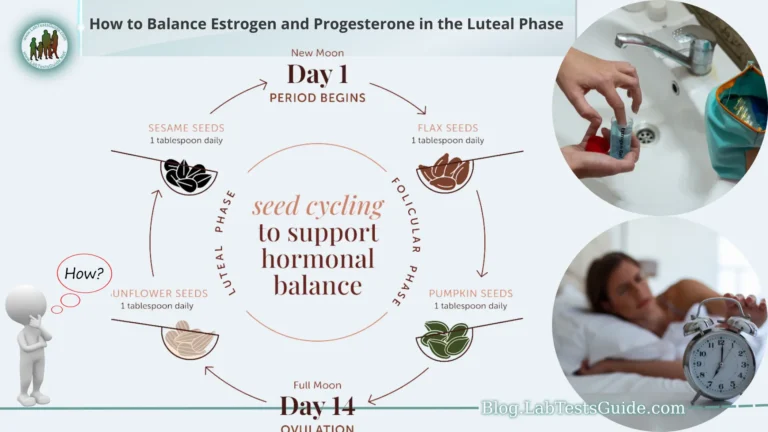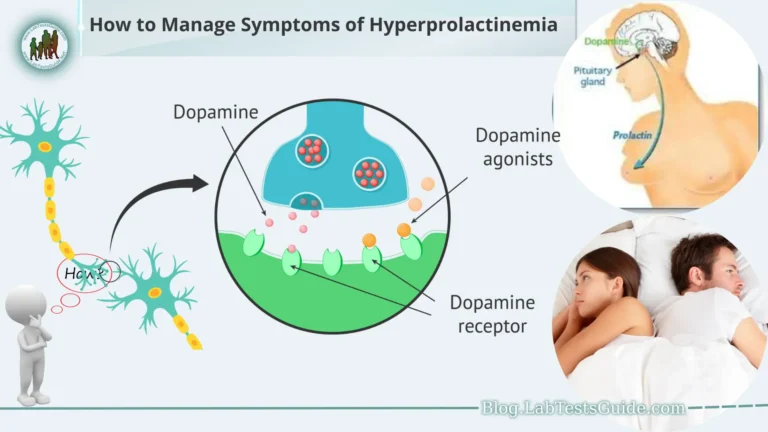Adrenal insufficiency is a medical condition characterized by the inadequate production or functioning of hormones in the adrenal glands. These small but mighty glands, situated on top of the kidneys, play a crucial role in regulating numerous bodily functions and maintaining overall well-being. When the adrenal glands fail to produce sufficient amounts of hormones like cortisol and aldosterone, it can lead to a range of symptoms and complications.

The impact of adrenal insufficiency goes beyond physical discomfort. Hormones produced by the adrenal glands help manage stress, regulate metabolism, control blood pressure, and support the immune system. Therefore, ensuring optimal adrenal gland function is vital for a healthy and balanced life.
Explore practical tips and lifestyle changes to enhance adrenal gland function in cases of adrenal insufficiency. Learn about diet, stress management, and potential supplements to support adrenal health and overall well-being.
What is Causes and types of adrenal insufficiency?
There are two primary types of adrenal insufficiency.
Primary Adrenal Insufficiency (Addison’s Disease):
- Autoimmune Disease: The most common cause of primary adrenal insufficiency is an autoimmune disease where the body’s immune system mistakenly attacks and damages the adrenal glands.
- Infections: Certain infections, such as tuberculosis, fungal infections, or HIV, can affect the adrenal glands and lead to insufficiency.
- Cancer: Rarely, cancerous growths in the adrenal glands or metastasis from other parts of the body can impair adrenal function.
- Genetic Disorders: Inherited genetic mutations can cause adrenal insufficiency, such as congenital adrenal hyperplasia.
- Infections: Certain infections, such as tuberculosis, fungal infections, or HIV, can directly affect the adrenal glands and impair their function.
Secondary Adrenal Insufficiency:
- Pituitary Gland Dysfunction: The pituitary gland, located at the base of the brain, releases adrenocorticotropic hormone (ACTH), which stimulates the adrenal glands to produce cortisol. If the pituitary gland doesn’t produce enough ACTH, it can result in secondary adrenal insufficiency.
- Hypothalamic Dysfunction: In some cases, the problem lies in the hypothalamus, a region of the brain that produces corticotropin-releasing hormone (CRH), which signals the pituitary gland to release ACTH. Dysfunction in the hypothalamus can disrupt this signaling process and lead to adrenal insufficiency.
- Sudden Cessation of Corticosteroid Therapy: Prolonged and high-dose corticosteroid therapy can suppress the adrenal glands’ natural hormone production. If these medications are abruptly discontinued without tapering, it can result in temporary adrenal insufficiency until the glands recover.
What is Symptoms and complications?
Here are some common symptoms and potential complications associated with adrenal insufficiency.
Common Symptoms:
- Fatigue and weakness
- Weight loss and decreased appetite
- Low blood pressure (hypotension)
- Dizziness or lightheadedness
- Salt cravings
- Nausea and vomiting
- Abdominal pain
- Muscle or joint pain
- Irritability or depression
- Skin changes, such as hyperpigmentation (darkening) in primary adrenal insufficiency
Adrenal Crisis:
- Adrenal crisis is a life-threatening complication that can occur in severe cases of adrenal insufficiency. It is triggered by stress, illness, injury, or sudden discontinuation of corticosteroid medications.
- Symptoms of adrenal crisis include severe fatigue, dehydration, confusion, low blood sugar (hypoglycemia), rapid heartbeat, extremely low blood pressure, and even loss of consciousness. Adrenal crisis requires immediate medical attention and administration of intravenous corticosteroids.
Secondary Complications:
- Electrolyte Imbalances: Insufficient aldosterone production in primary adrenal insufficiency can lead to electrolyte imbalances, such as low sodium (hyponatremia) and high potassium (hyperkalemia).
- Low Blood Sugar: Cortisol helps regulate blood sugar levels, so inadequate cortisol production can result in low blood sugar (hypoglycemia).
- Impaired Immune Function: Cortisol plays a role in modulating the immune system, so adrenal insufficiency may lead to increased susceptibility to infections.
- Adrenal Crisis: As mentioned earlier, adrenal crisis is a severe complication that requires immediate medical attention.
How to Prevention and Precautions?
Here are some prevention strategies and precautions to consider.
Early Detection and Treatment:
- Be aware of the risk factors and symptoms associated with adrenal insufficiency. If you suspect you may have adrenal insufficiency, seek medical evaluation promptly for accurate diagnosis and treatment initiation.
- Follow your healthcare professional’s recommendations for regular check-ups, blood tests, and imaging studies to monitor adrenal gland function and overall health.
Adrenal Crisis Prevention:
- Learn to recognize the signs and symptoms of adrenal crisis, and have an emergency action plan in place. This may involve carrying a medical alert bracelet or card indicating your condition and emergency contact information.
- Work closely with your healthcare professional to establish an appropriate daily dosage of corticosteroid medications (if prescribed) and understand the circumstances in which you may need to adjust the dosage during illness, injury, or other stressful situations.
- Always carry an emergency supply of corticosteroid medications (e.g., hydrocortisone) for immediate use during adrenal crisis.
Communication with Healthcare Professionals:
- Maintain regular communication with your healthcare team, including endocrinologists and primary care physicians, to discuss any changes in symptoms, medication adjustments, or concerns regarding your adrenal health.
- Inform other healthcare professionals, such as emergency responders, surgeons, or dentists, about your adrenal insufficiency condition and medications you are taking, as they may need to make adjustments during medical procedures.
- Stress Management: Stress can impact adrenal gland function, so implementing effective stress management techniques is crucial. This may include practicing relaxation exercises, engaging in hobbies and activities that promote well-being, and seeking support from mental health professionals or support groups.
- Medication Management: If you are on hormone replacement therapy or corticosteroid medications, follow the prescribed dosage and schedule as directed by your healthcare professional. Do not make any changes to your medication regimen without consulting your healthcare provider.
Lifestyle Modifications:
Here are some key lifestyle modifications to consider.
Diet and Nutrition:
- Maintain a balanced diet rich in whole foods, including fruits, vegetables, lean proteins, whole grains, and healthy fats. Avoid excessive consumption of processed foods, sugary snacks, and high-sodium foods.
- Adequate hydration is essential, so drink plenty of water throughout the day. Consult with your healthcare professional to determine the appropriate fluid intake for your specific needs.
- Some individuals with adrenal insufficiency may benefit from a slightly higher salt intake, particularly if aldosterone production is impaired. However, it is important to work with your healthcare professional to determine the appropriate sodium intake for your condition.
Stress Management Techniques:
- Chronic stress can negatively impact adrenal function. Incorporate stress management techniques into your daily routine, such as deep breathing exercises, meditation, yoga, mindfulness, or engaging in activities you find relaxing and enjoyable.
- Prioritize self-care and allocate time for activities that help you unwind and reduce stress.
Sleep and Rest:
- Aim for adequate and quality sleep each night. Establish a regular sleep schedule and create a sleep-friendly environment that promotes relaxation.
- Ensure you allow yourself sufficient time for rest and recovery throughout the day. Listen to your body’s signals and take breaks when needed.
Regular Exercise:
- Engage in regular physical activity, as appropriate for your individual condition and fitness level. Exercise can help manage stress, improve mood, support overall well-being, and promote cardiovascular health.
- However, it’s important to consult with your healthcare professional before starting or modifying any exercise regimen, as certain types of exercise may need to be adjusted or avoided depending on your specific circumstances.
Avoidance of Stimulants and Excessive Caffeine:
- Limit or avoid the consumption of stimulants such as caffeine, as they can potentially worsen adrenal function and disrupt sleep patterns.
- Be mindful of the ingredients in medications, supplements, and herbal remedies, as they may contain stimulants or other substances that can affect adrenal function. Consult with your healthcare professional or pharmacist before starting any new medications or supplements.
Regular Medical Check-ups: Stay consistent with regular medical check-ups and follow-up appointments with your healthcare professional to monitor your adrenal gland function, adjust medications as needed, and address any concerns.
Medication and Treatment Options:
Here are some common medication and treatment options used in the management of adrenal insufficiency.
Hormone Replacement Therapy:
- Glucocorticoid Medications: The primary hormone replacement therapy for adrenal insufficiency involves taking glucocorticoid medications, such as hydrocortisone, prednisone, or dexamethasone. These medications help replace the deficient cortisol levels and support various bodily functions. The dosage and timing of these medications may vary depending on individual needs and stress levels.
- Mineralocorticoid Medications: In cases where aldosterone production is also compromised, mineralocorticoid medications like fludrocortisone may be prescribed. These medications help regulate fluid balance, sodium and potassium levels, and blood pressure.
Dosing and Monitoring:
- It is crucial to work closely with your healthcare professional to determine the appropriate dosage and schedule of hormone replacement medications. This may involve adjusting the dosage based on stress levels, illness, or injury.
- Regular monitoring of hormone levels, electrolytes, and other relevant blood tests is essential to ensure optimal dosing and adjustment of medications as needed.
Emergency Medications:
- Individuals with adrenal insufficiency should have an emergency supply of injectable corticosteroids (such as hydrocortisone) available at all times. These medications can be administered during times of severe illness, injury, or adrenal crisis. It is important to receive proper training from your healthcare professional on how to administer emergency medications.
Medication Precautions:
- If you are on hormone replacement therapy, it is essential to follow your healthcare professional’s instructions regarding dosage adjustments during times of illness, stress, or other circumstances that may increase the demand for cortisol.
- It is important to carry a medical alert card or wear a medical alert bracelet to inform others of your adrenal insufficiency and the need for corticosteroid medications in case of an emergency.
Surgical Interventions: In rare cases where adrenal insufficiency is caused by tumors or other structural issues, surgical interventions, such as adrenal gland removal or tumor removal, may be necessary. These interventions are typically reserved for specific situations and require a thorough evaluation by a healthcare professional.
Natural Remedies and Alternative Approaches:
Here are some natural remedies and alternative approaches to consider.
Herbal Supplements and Adaptogens:
- Adaptogenic herbs: Certain herbs, such as ashwagandha, licorice root, ginseng, and Rhodiola rosea, have been traditionally used to support adrenal health and help the body adapt to stress. These herbs are known as adaptogens and may help regulate cortisol levels.
Nutritional Support:
- Ensure a nutrient-rich diet: Consume a well-balanced diet that includes foods rich in essential nutrients for adrenal health, such as vitamin C, B vitamins, magnesium, and zinc. Incorporate foods like citrus fruits, leafy greens, nuts, seeds, whole grains, and lean proteins into your meals.
- Consider supplementation: In some cases, supplementation with specific nutrients may be beneficial. However, it’s essential to consult with a healthcare professional to determine if supplementation is necessary and to ensure appropriate dosages.
Acupuncture and Traditional Chinese Medicine:
- Acupuncture: Acupuncture, a traditional Chinese medicine practice, involves the insertion of thin needles into specific points on the body. It is believed to help restore balance and promote overall well-being, including supporting adrenal health.
- Traditional Chinese herbal medicine: Certain Chinese herbal formulations may be recommended by a qualified practitioner to support adrenal function and help manage stress. Consult with a trained practitioner in traditional Chinese medicine for personalized recommendations.
Stress-Reduction Techniques:
- Meditation and mindfulness: Engage in regular meditation or mindfulness practices to reduce stress and promote relaxation. These techniques can help regulate the body’s stress response and support adrenal health.
- Breathing exercises: Deep breathing exercises, such as diaphragmatic breathing or alternate nostril breathing, can help activate the body’s relaxation response and reduce stress levels.
- Mind-body practices: Engage in mind-body practices like yoga, tai chi, or qigong, which combine gentle movements, breathing techniques, and meditation to promote relaxation and balance.
Lifestyle Modifications:
- Adequate rest and sleep: Prioritize getting enough sleep and rest to support adrenal recovery and overall well-being.
- Regular exercise: Engaging in moderate exercise, as appropriate for your condition, can help manage stress and improve overall health. Consult with a healthcare professional to determine suitable exercise options for you.
- Stress management techniques: Practice stress management techniques like journaling, engaging in hobbies, spending time in nature, or seeking support from a therapist or support group.
Exercise and Physical Activity:
Here are some key points to consider when it comes to exercise and physical activity for individuals with adrenal insufficiency.
Consult with your Healthcare Professional:
- Before starting or modifying any exercise program, consult with your healthcare professional. They can provide guidance based on your individual condition, fitness level, and any specific considerations related to adrenal insufficiency.
- Your healthcare professional can help determine appropriate exercise intensity, duration, and type based on your specific needs and limitations.
Benefits of Exercise:
- Stress management: Exercise can help reduce stress levels and enhance the body’s ability to cope with stress. It promotes the release of endorphins, which are known as “feel-good” hormones, and can help improve mood and overall well-being.
- Cardiovascular health: Engaging in aerobic exercises like walking, swimming, cycling, or jogging can help improve cardiovascular health and increase stamina.
- Muscle strength and endurance: Incorporating strength training exercises, such as resistance training or weightlifting, can help improve muscle strength and endurance.
- Weight management: Regular exercise can aid in maintaining a healthy weight, which is important for overall health and managing certain aspects of adrenal insufficiency.
Suitable Exercises for Adrenal Insufficiency:
- Low-impact exercises: Low-impact exercises, such as walking, cycling, swimming, or using an elliptical machine, can be beneficial for individuals with adrenal insufficiency. These exercises are generally gentler on the joints and can be modified based on individual fitness levels.
- Flexibility and stretching exercises: Engaging in activities like yoga, Pilates, or gentle stretching exercises can help improve flexibility, enhance relaxation, and reduce muscle tension.
- Interval training: Some individuals with adrenal insufficiency may benefit from interval training, which involves alternating periods of higher intensity exercise with lower intensity or rest periods. However, it is important to approach interval training cautiously and gradually increase intensity, as it can be more demanding on the body
Exercise Precautions and Considerations:
- Listen to your body: Pay attention to how you feel during and after exercise. If you experience excessive fatigue, dizziness, or other concerning symptoms, it’s important to modify the intensity or duration of your workouts and consult with your healthcare professional.
- Rest and recovery: Allow for adequate rest and recovery between exercise sessions to prevent overexertion and support adrenal function.
- Stay hydrated: Proper hydration is essential during exercise. Drink water before, during, and after your workouts to maintain adequate hydration levels.
- Adapt to fluctuations: Be prepared to adjust your exercise routine based on your energy levels and any fluctuations in adrenal function. Some days may require more gentle or lower intensity exercises, while others may allow for increased activity.
Supportive Measures and Lifestyle Adjustments:
Here are some supportive measures and lifestyle adjustments to consider.
Balanced Nutrition:
- Follow a balanced diet that includes a variety of nutrient-rich foods. Focus on whole foods, including fruits, vegetables, lean proteins, whole grains, and healthy fats.
- Avoid excessive consumption of processed foods, sugary snacks, and high-sodium foods. Limit intake of caffeine and stimulants, as they may disrupt adrenal function.
Regular Medical Check-ups:
- Schedule regular check-ups with your healthcare professional to monitor your adrenal gland function, adjust medication dosages if necessary, and address any concerns.
- Regular monitoring of hormone levels, electrolytes, and other relevant blood tests can help ensure optimal management of adrenal insufficiency.
Stress Reduction:
- Implement stress reduction techniques into your daily routine. Engage in activities that help you relax and unwind, such as meditation, deep breathing exercises, yoga, or engaging in hobbies you enjoy.
- Prioritize self-care and allocate time for activities that bring you joy and help alleviate stress.
Adequate Rest and Sleep:
- Prioritize sufficient rest and quality sleep. Establish a regular sleep schedule and create a sleep-friendly environment that promotes relaxation.
- Listen to your body’s signals and allow yourself enough time for rest and recovery throughout the day.
Avoidance of Excessive Stress:
- Identify and minimize sources of excessive stress in your life. This may involve setting boundaries, practicing time management, delegating tasks, or seeking support from loved ones or professionals when needed.
- Prioritize self-care activities and make time for relaxation and activities that bring you joy and help reduce stress.
Support Network:
- Seek support from friends, family, or support groups who can provide understanding, encouragement, and assistance in managing adrenal insufficiency.
- Consider joining online or local support groups where you can connect with others facing similar challenges.
FAQs:
What is adrenal crisis, and how is it different from adrenal insufficiency?
Adrenal crisis is a life-threatening condition that can occur in individuals with adrenal insufficiency. It is characterized by a sudden and severe worsening of symptoms, such as extreme fatigue, dehydration, low blood pressure, and electrolyte imbalances. Adrenal crisis requires immediate medical attention and intravenous administration of corticosteroids.
Can adrenal insufficiency be cured?
Adrenal insufficiency is a chronic condition that typically requires lifelong management. While it cannot be cured, it can be effectively managed with hormone replacement therapy and lifestyle modifications. Adherence to prescribed medications and regular medical monitoring are crucial for maintaining optimal adrenal function.
How is adrenal insufficiency diagnosed?
Adrenal insufficiency is diagnosed through a combination of medical history evaluation, physical examination, blood tests to measure hormone levels (e.g., cortisol, ACTH), and sometimes additional tests such as ACTH stimulation test or imaging studies.
Can stress trigger adrenal insufficiency?
Chronic stress can exacerbate adrenal insufficiency symptoms, but it is not a direct cause of the condition. Adrenal insufficiency typically results from damage to the adrenal glands or dysfunction in hormone production rather than stress alone.
Can I exercise with adrenal insufficiency?
Yes, exercise can be beneficial for individuals with adrenal insufficiency. However, it’s important to consult with your healthcare professional before starting or modifying any exercise regimen. They can provide personalized recommendations based on your specific condition and fitness level.
Can natural remedies or alternative therapies cure adrenal insufficiency?
Natural remedies and alternative therapies can provide supportive measures for adrenal insufficiency but cannot cure the condition. These approaches should be used in conjunction with prescribed medical treatments and under the guidance of a healthcare professional.
How often should I have my hormone levels monitored?
The frequency of hormone level monitoring can vary depending on individual needs and healthcare professional recommendations. In general, regular monitoring is essential to ensure appropriate medication dosing and adjustments. Your healthcare professional can provide specific guidance on how often you should have your hormone levels checked.
Can I travel with adrenal insufficiency?
Yes, individuals with adrenal insufficiency can travel, but it requires careful planning. It is important to carry an emergency supply of corticosteroid medication, wear a medical alert bracelet, and have a written emergency action plan. Consult with your healthcare professional before traveling to discuss specific considerations and precautions.
Conclusion:
In conclusion, managing adrenal insufficiency requires a comprehensive approach that encompasses medical treatments, lifestyle modifications, and support measures. Adrenal insufficiency, whether primary or secondary, affects the production of crucial hormones in the adrenal glands, impacting various bodily functions. By working closely with healthcare professionals, individuals can develop personalized treatment plans that may include hormone replacement therapy, regular monitoring, and adjustments of medications. Additionally, implementing lifestyle modifications such as stress management techniques, balanced nutrition, regular exercise, and adequate rest can provide valuable support for adrenal gland function. While natural remedies and alternative approaches can be used as complementary strategies, they should be used under professional guidance. With proper management, individuals with adrenal insufficiency can improve their quality of life and effectively navigate the challenges associated with this condition.






